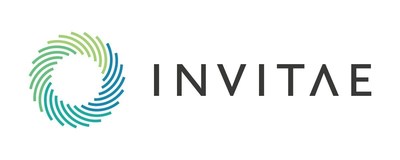-- Largest Dataset of Prostate Cancer Patients Shows 17% Have Increased Risk Based on Genetic Analysis --
SAN FRANCISCO, Feb. 7, 2019 /PRNewswire/ -- The largest study to date on the genetics of prostate cancer has found that 17 percent of prostate cancer patients are born with genetic variants that can be associated with higher risk of various cancers. The study was published today in JAMA Oncology by researchers from Tulane Cancer Center and Invitae (NYSE: NVTA), a leading genetics company. In addition, the analysis found that guidelines for genetic testing at the time of the study missed a substantial number of patients, suggesting broader testing is warranted.

"This research shows the genetic risks associated with prostate cancer have been underestimated and provides support for expanding testing to include an increased number of prostate cancer patients," said Oliver Sartor, M.D., Tulane Cancer Center medical director and lead author on the study. "Expanding the use of genetic testing in prostate cancer patients can inform treatment strategies and potentially suggest treatment with targeted therapies or clinical trials. In addition, testing can provide valuable information for a patient's family, allowing for increased screening among those at risk that can potentially help prevent additional cancer deaths."
Previous research has shown that approximately 12 percent[1] of men with certain genetic variants have an increased risk of developing prostate cancer and may also be at risk for more aggressive forms of the disease. Relatives of men with these variants, including female relatives who carry these variants, can also be at increased risk for other cancer types including breast, ovarian, pancreatic, uterine and/or colon cancers.
The Tulane and Invitae study was an observational cross-sectional cohort of 3,607 men collected between 2013 and 2018 with a personal history of prostate cancer. Unlike previous studies in hereditary prostate cancer, inclusion in the study was not dependent on Gleason score, ethnicity, family history or stage of disease. The study included both the largest number of prostate cancer patients and the largest sampling of non-Caucasian patients studied to date.
Results showed that among men with a personal history of prostate cancer, pathological variants were identified in 620 of 3,607 patients (17.2%), only 30.7 percent of which were in BRCA1/2. Positive variants in HOXB13, a gene associated only with prostate cancer risk, were identified in 30 (4.5%) patients and this represents an important subset of patients not currently covered by current guidelines. Examination of provided family histories indicated that 37 percent of the individuals with positive variants in this cohort would not have been approved for testing using the family-based guidelines at the time of study. Guidelines since have been revised and expanded to rely more heavily on Gleason scores for identifying patients for genetic testing. However, Gleason scores were an imperfect predictor of pathogenic variants in this dataset. Furthermore, Gleason scores require biopsy and are not always readily available to practitioners or family members who want genetic testing.
"These findings support broadening and simplifying current guidelines to ensure all patients with prostate cancer have access to genetic information to guide their care and inform their families of any elevated inherited cancer risks," said Robert Nussbaum, M.D., chief medical officer of Invitae. "Medically actionable genetic information is invaluable for managing, treating and preventing cancer. As clinical understanding of genetics and its impact on disease broadens, there is a medical responsibility to ensure that everyone that may benefit from genetic testing has access to it."
Prostate cancer is the second-leading cause of cancer death in men in the United States, with more than 174,000 new cases expected to be diagnosed this year according to the American Cancer Society.
About Invitae
Invitae Corporation (NYSE: NVTA) is a leading genetics company, whose mission is to bring comprehensive genetic information into mainstream medicine to improve healthcare for billions of people. Invitae's goal is to aggregate the world's genetic tests into a single service with higher quality, faster turnaround time, and lower prices. For more information, visit the company's website at invitae.com.
Safe Harbor Statement
This press release contains forward-looking statements within the meaning of the Private Securities Litigation Reform Act of 1995, including statements relating to the benefits of expanding the use of genetic testing in prostate cancer patients; broadening and simplifying testing guidelines to ensure prostate cancer patients have access to genetic information; and that genetic information is invaluable for managing, treating and preventing cancer. Forward-looking statements are subject to risks and uncertainties that could cause actual results to differ materially, and reported results should not be considered as an indication of future performance. These risks and uncertainties include, but are not limited to: the company's history of losses; the company's ability to compete; the company's failure to manage growth effectively; the company's need to scale its infrastructure in advance of demand for its tests and to increase demand for its tests; the company's ability to use rapidly changing genetic data to interpret test results accurately and consistently; security breaches, loss of data and other disruptions; laws and regulations applicable to the company's business; and the other risks set forth in the company's filings with the Securities and Exchange Commission, including the risks set forth in the company's Quarterly Report on Form 10-Q for the quarter ended September 30, 2018. These forward-looking statements speak only as of the date hereof, and Invitae Corporation disclaims any obligation to update these forward-looking statements.
Contact:
Laura D'Angelo
pr@invitae.com
(628) 213-3283
[1]
Pritchard, CC, et al. Inherited DNA-Repair Gene Mutations in Men with Metastatic Prostate Cancer. N Engl J Med 2016; 375:443-453.
 View original content to download multimedia:http://www.prnewswire.com/news-releases/new-study-finds-disease-causing-variants-more-common-in-men-with-prostate-cancer-than-previously-thought-300791723.html
View original content to download multimedia:http://www.prnewswire.com/news-releases/new-study-finds-disease-causing-variants-more-common-in-men-with-prostate-cancer-than-previously-thought-300791723.html
SOURCE Invitae Corporation